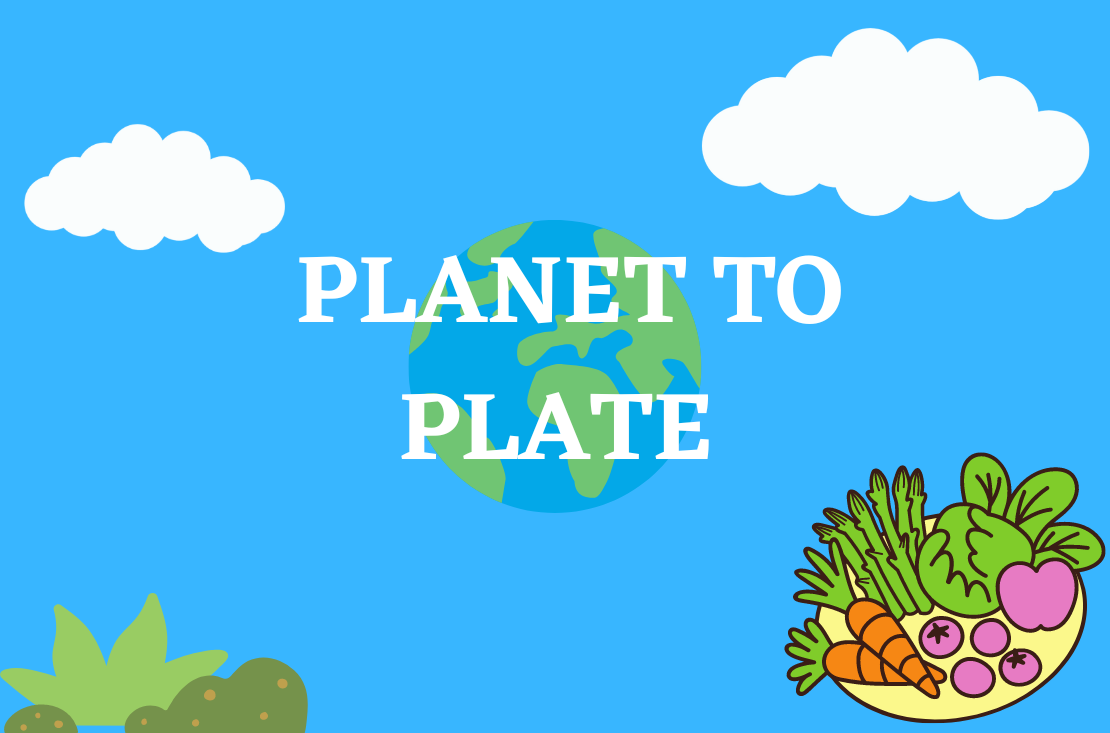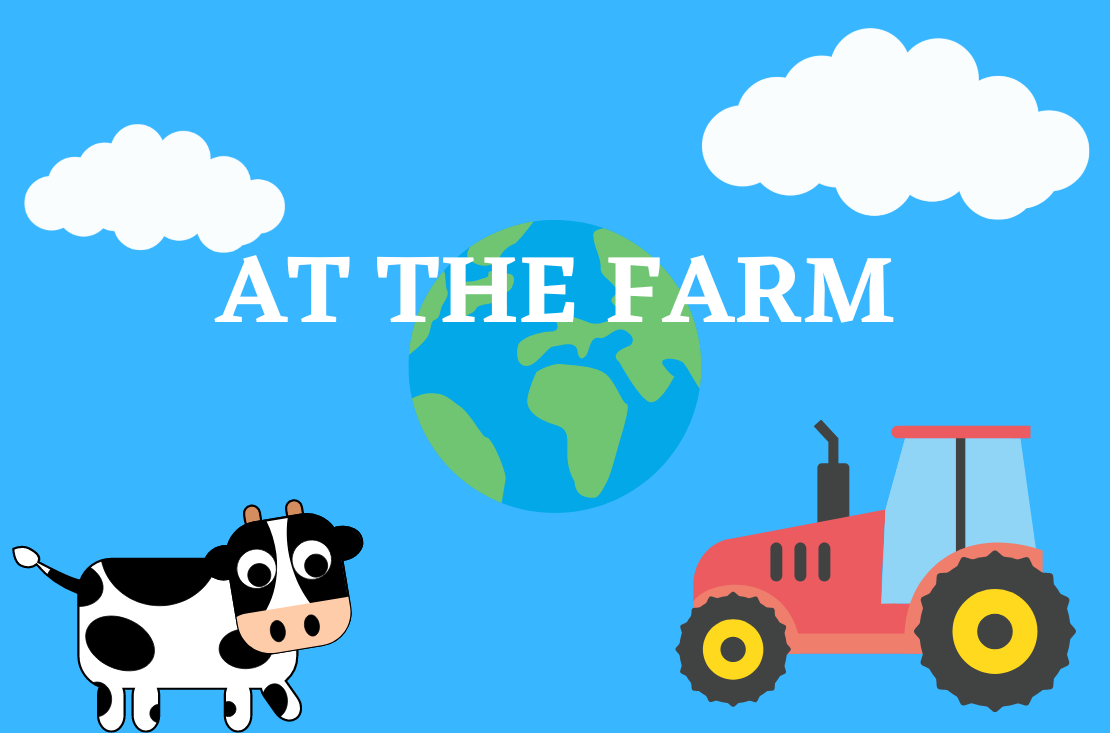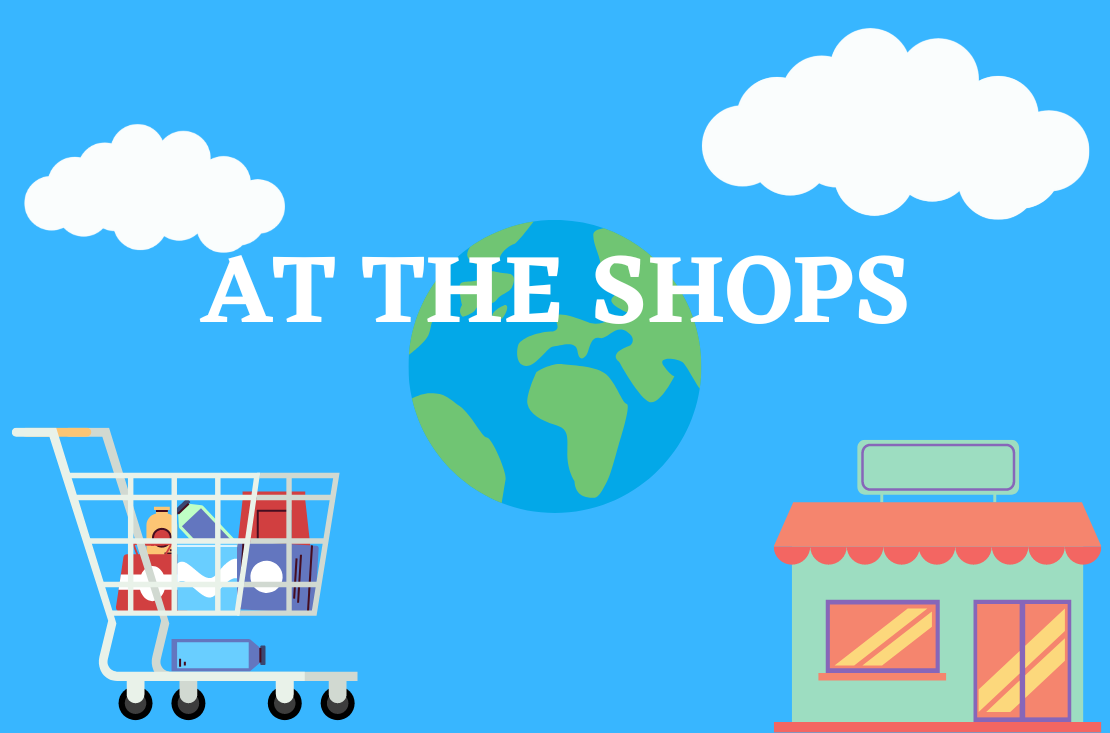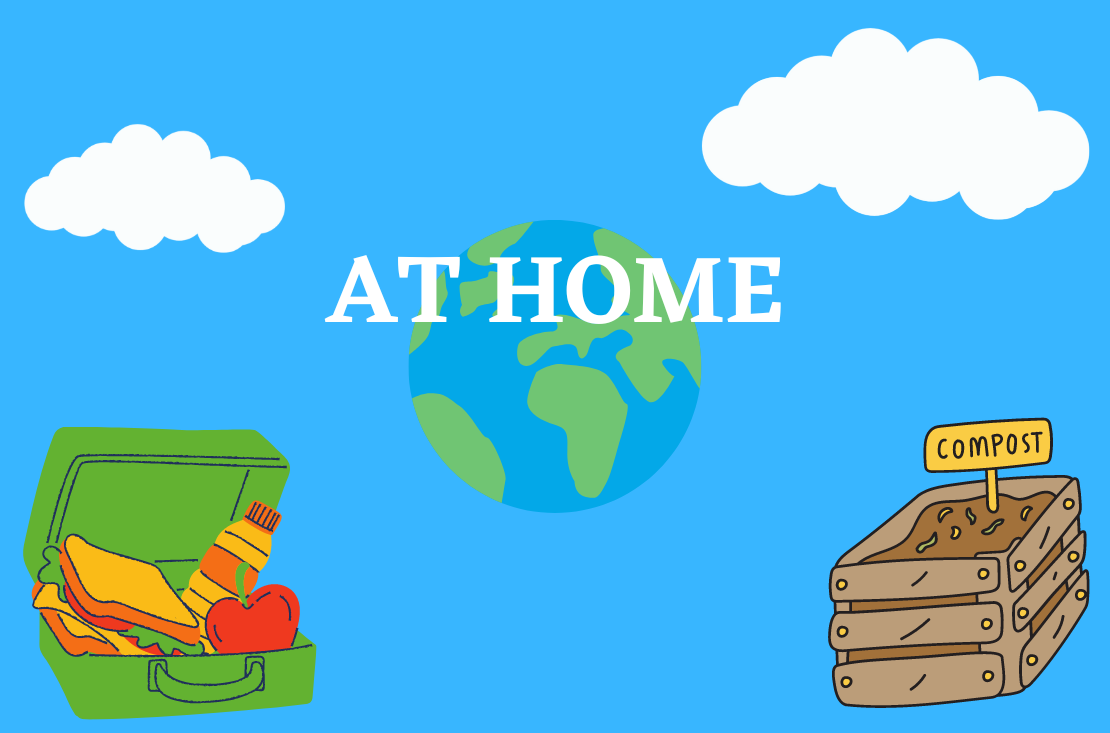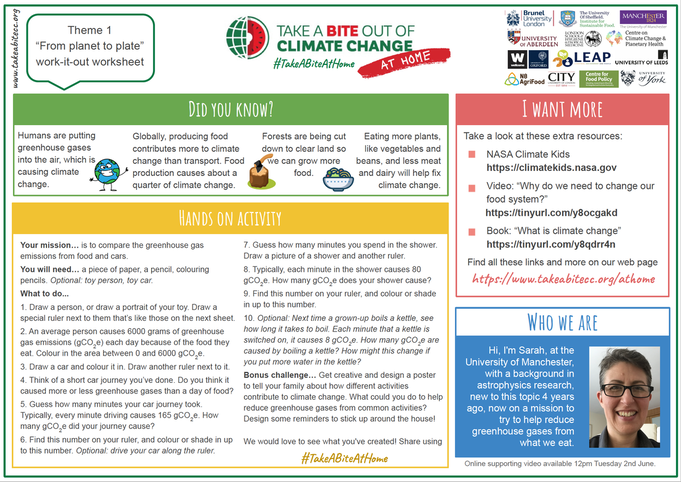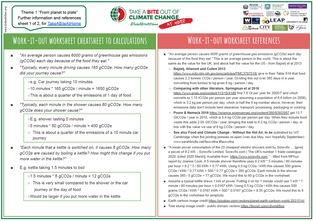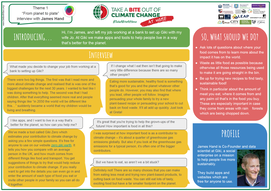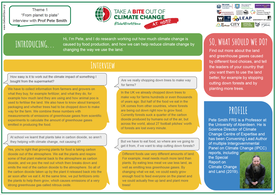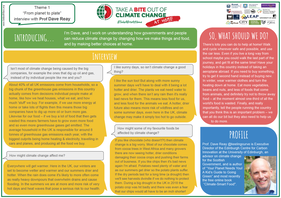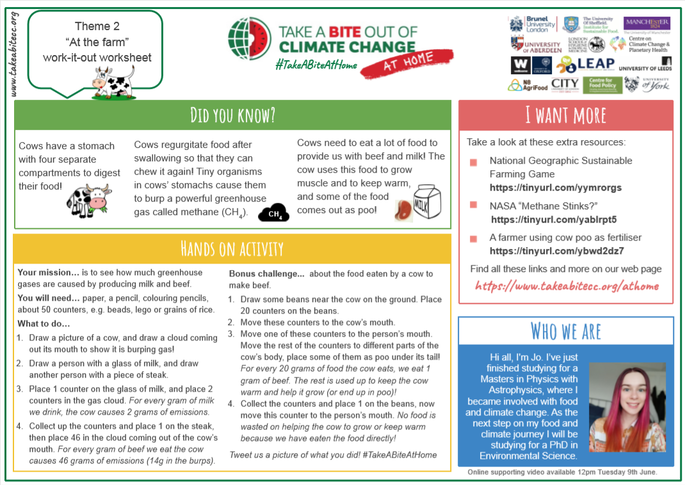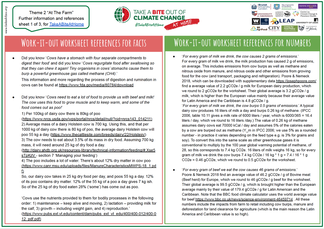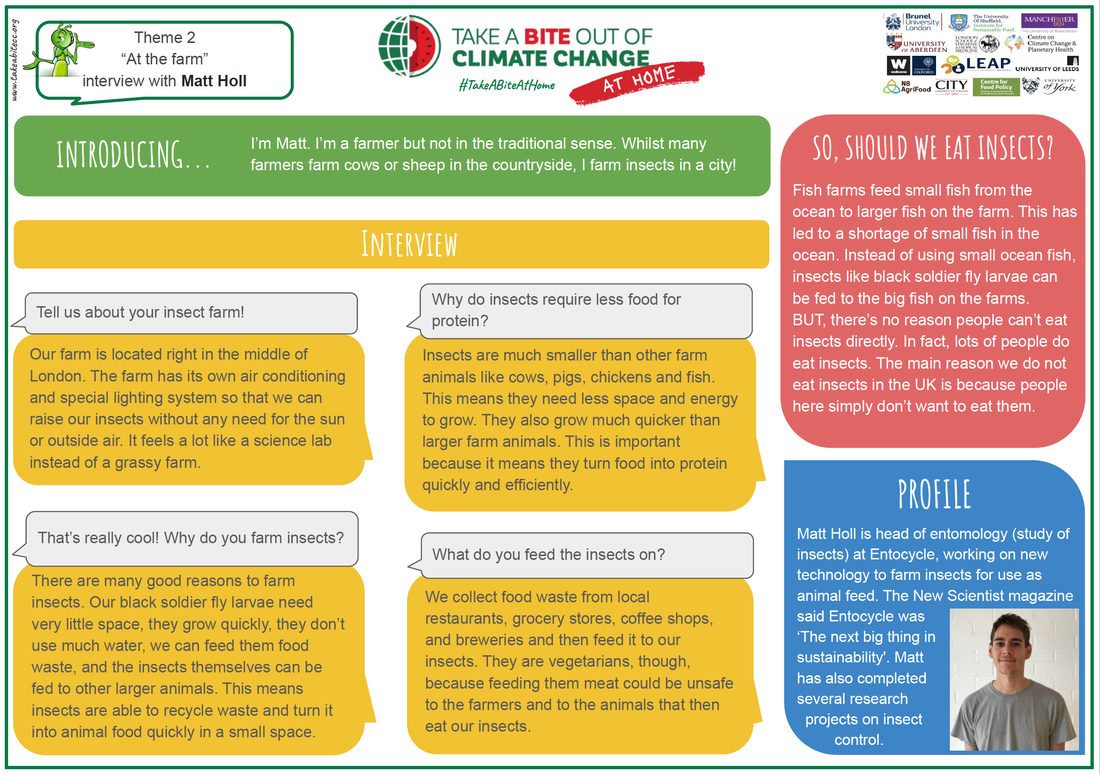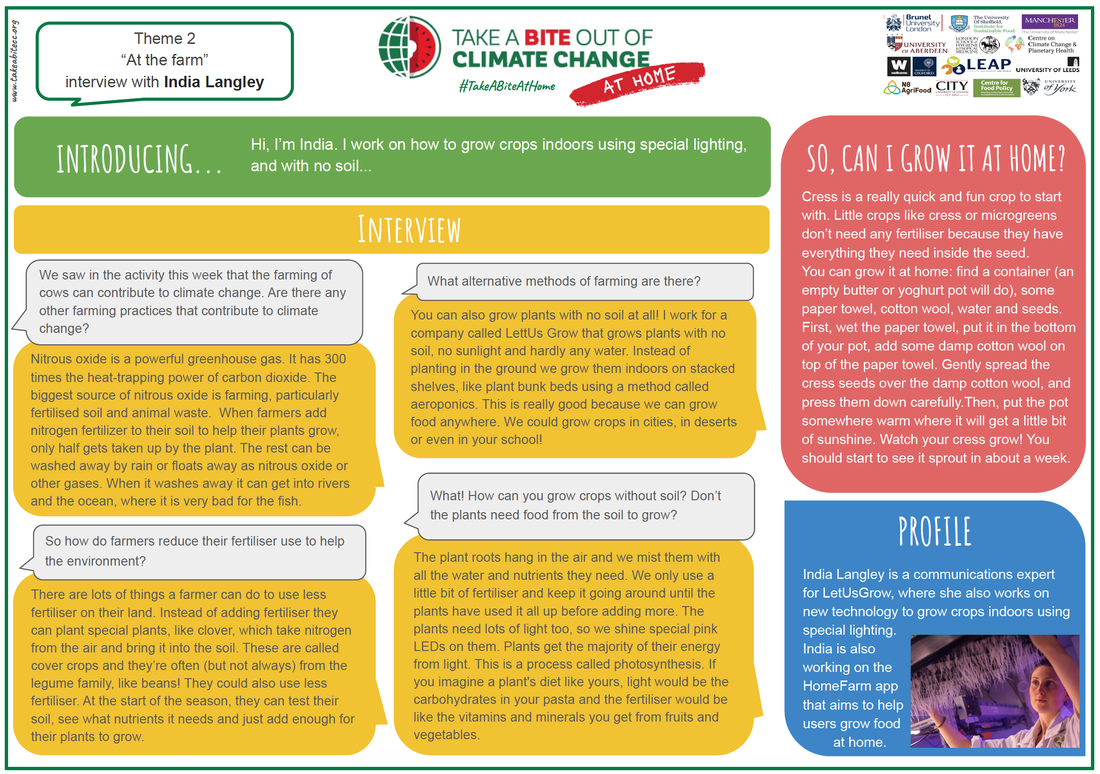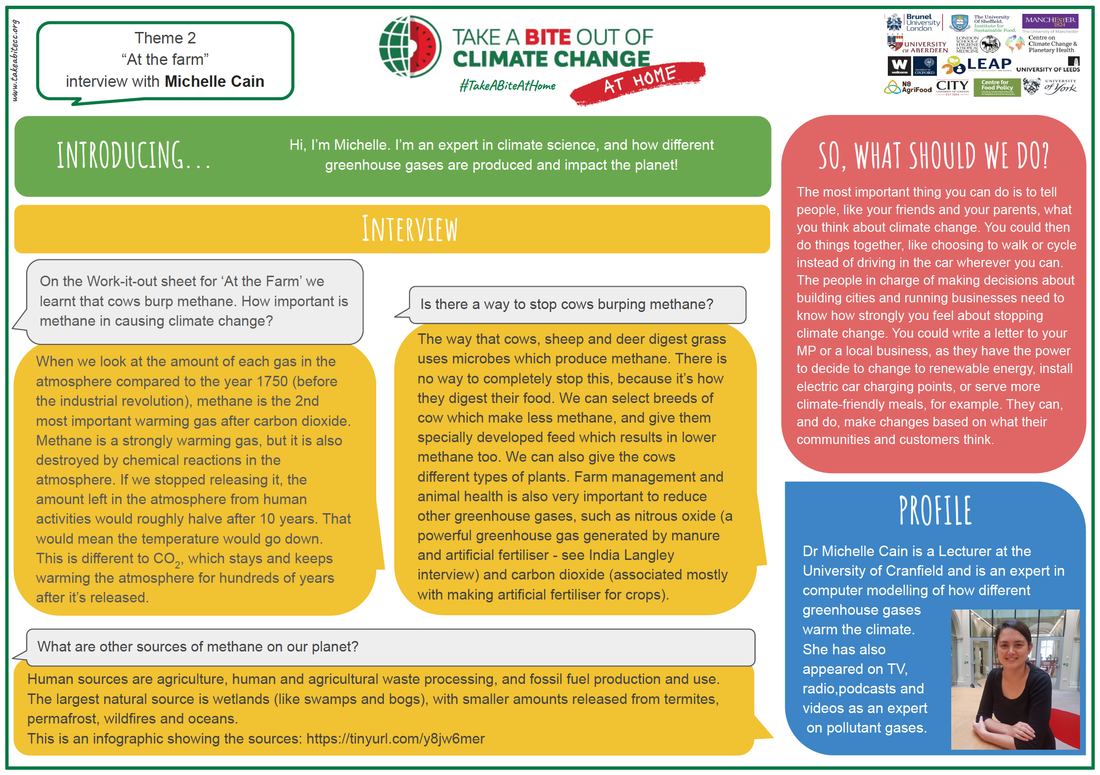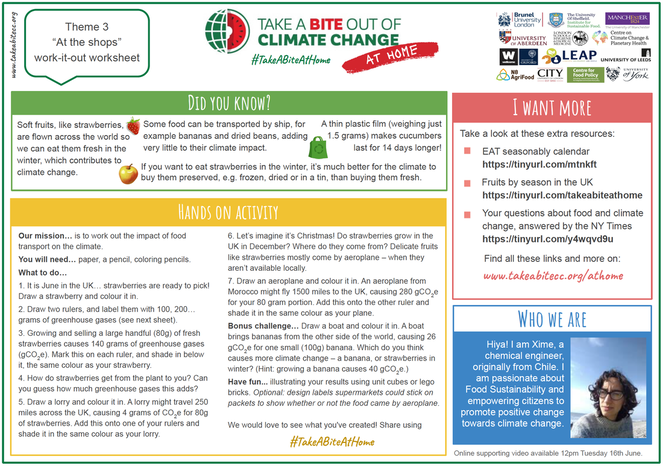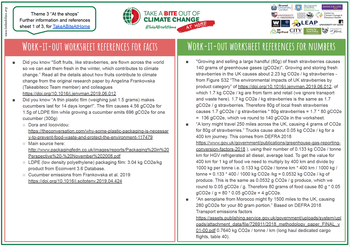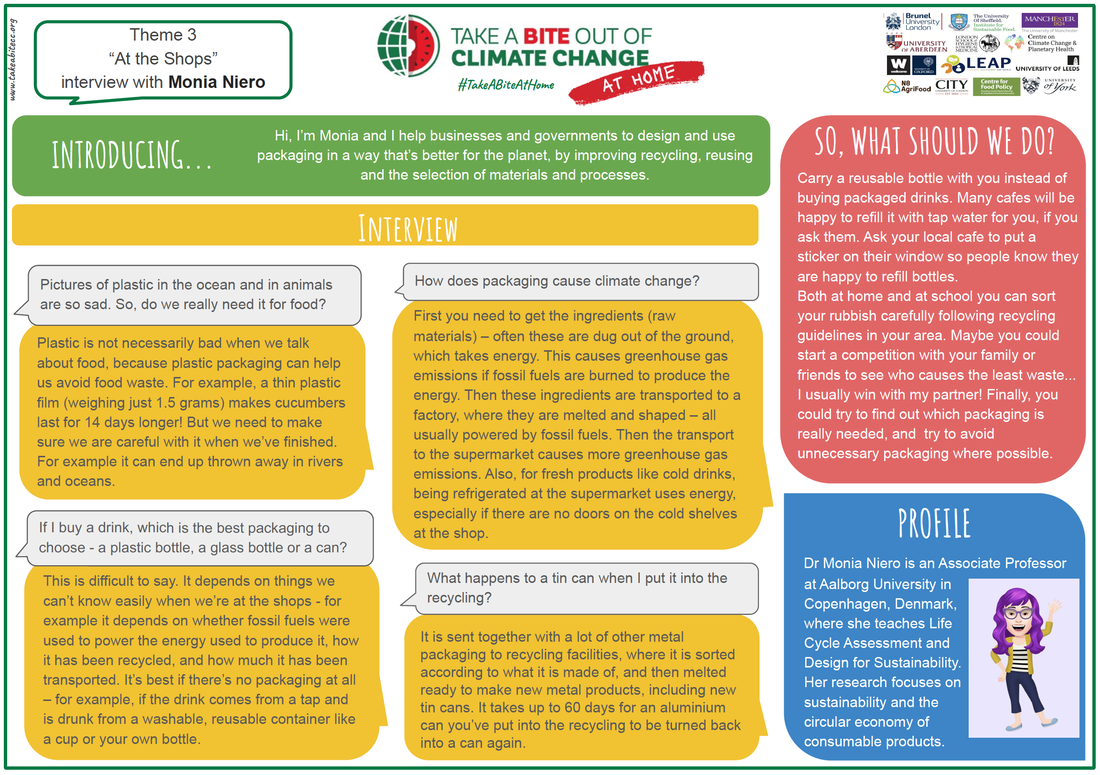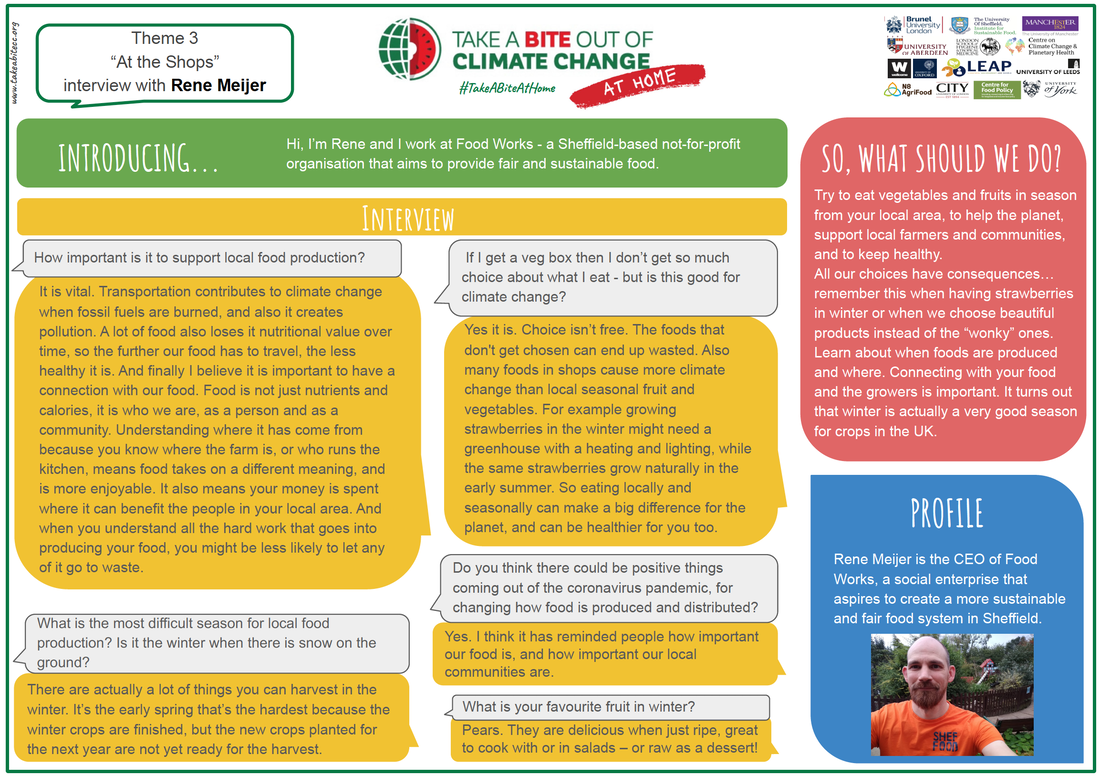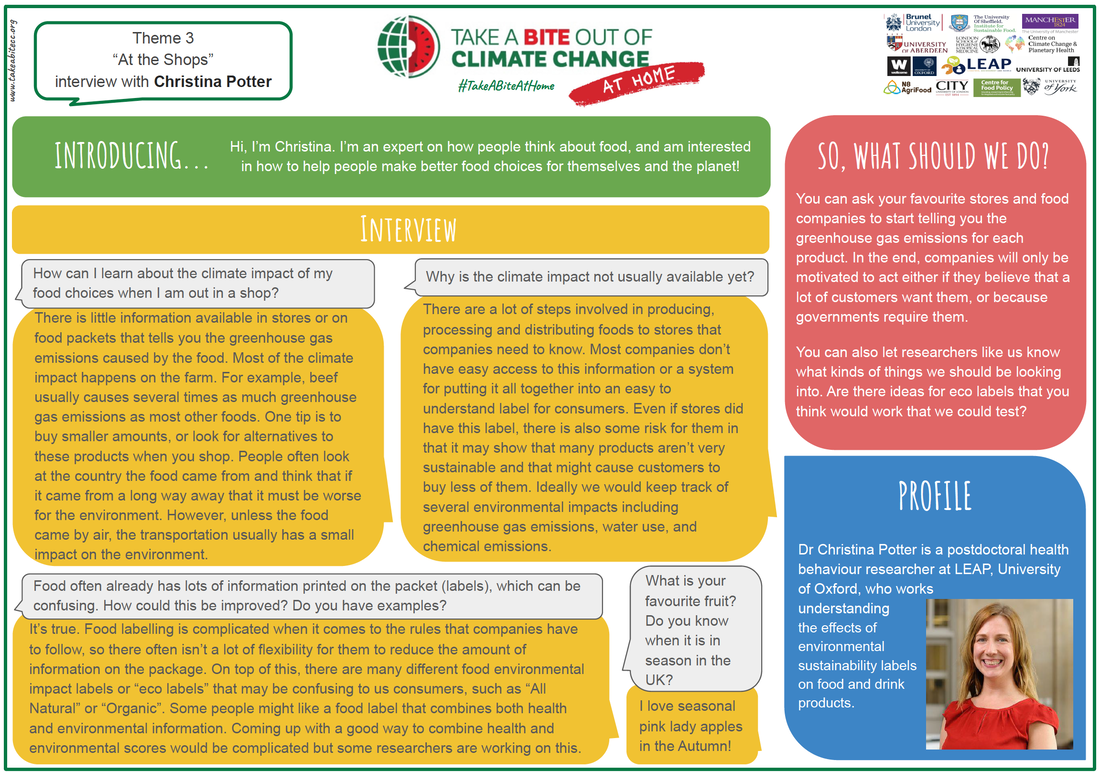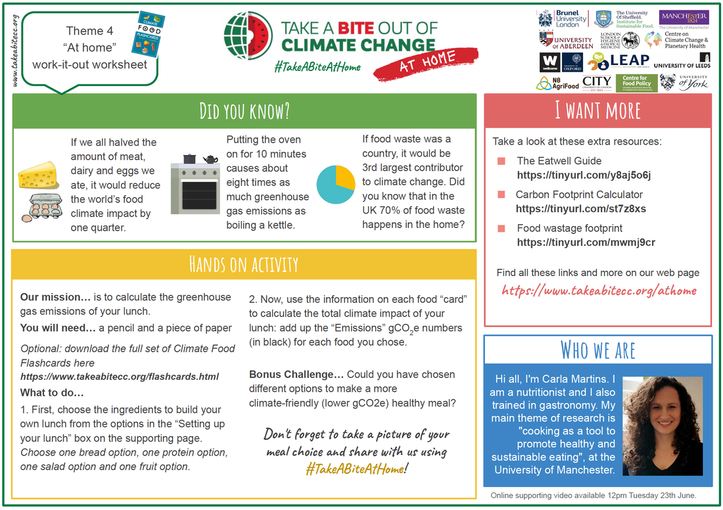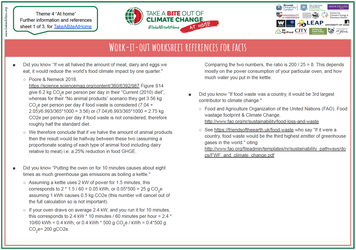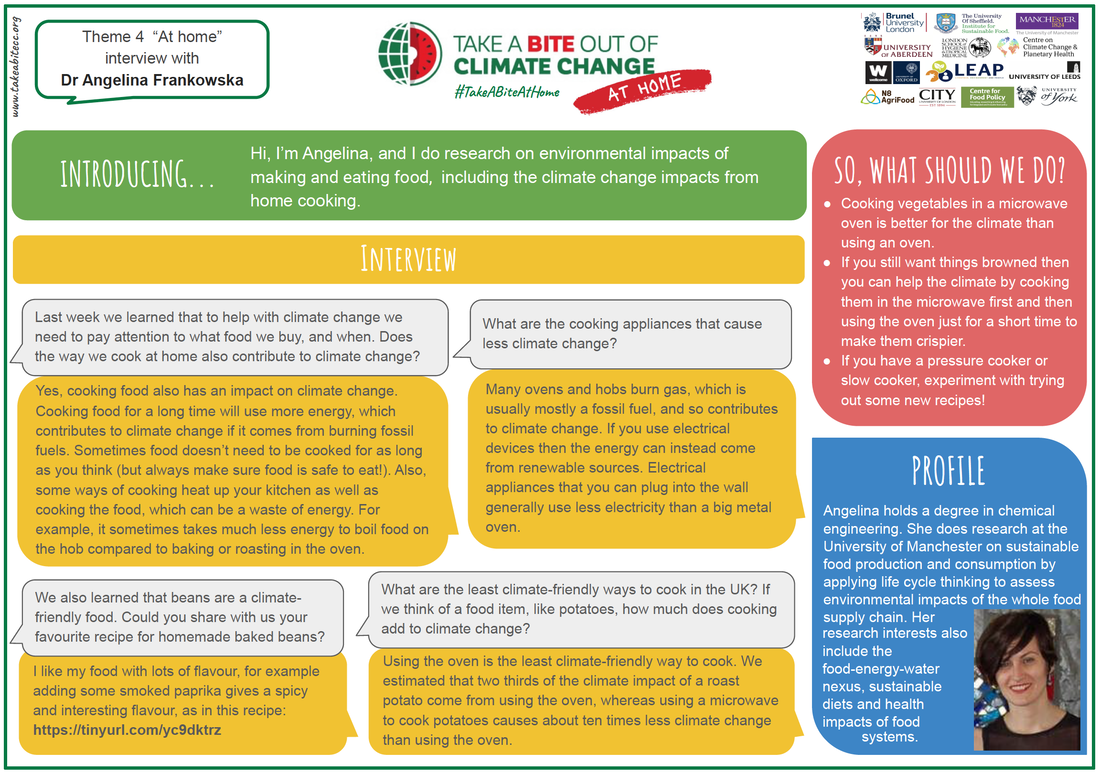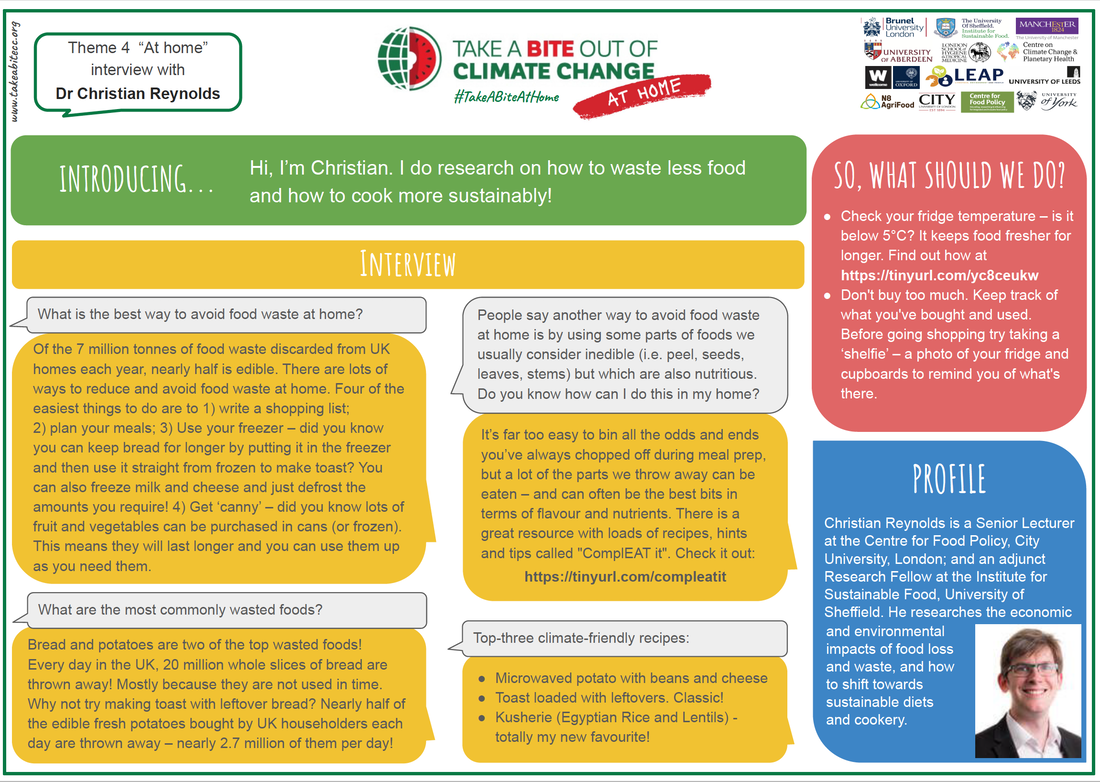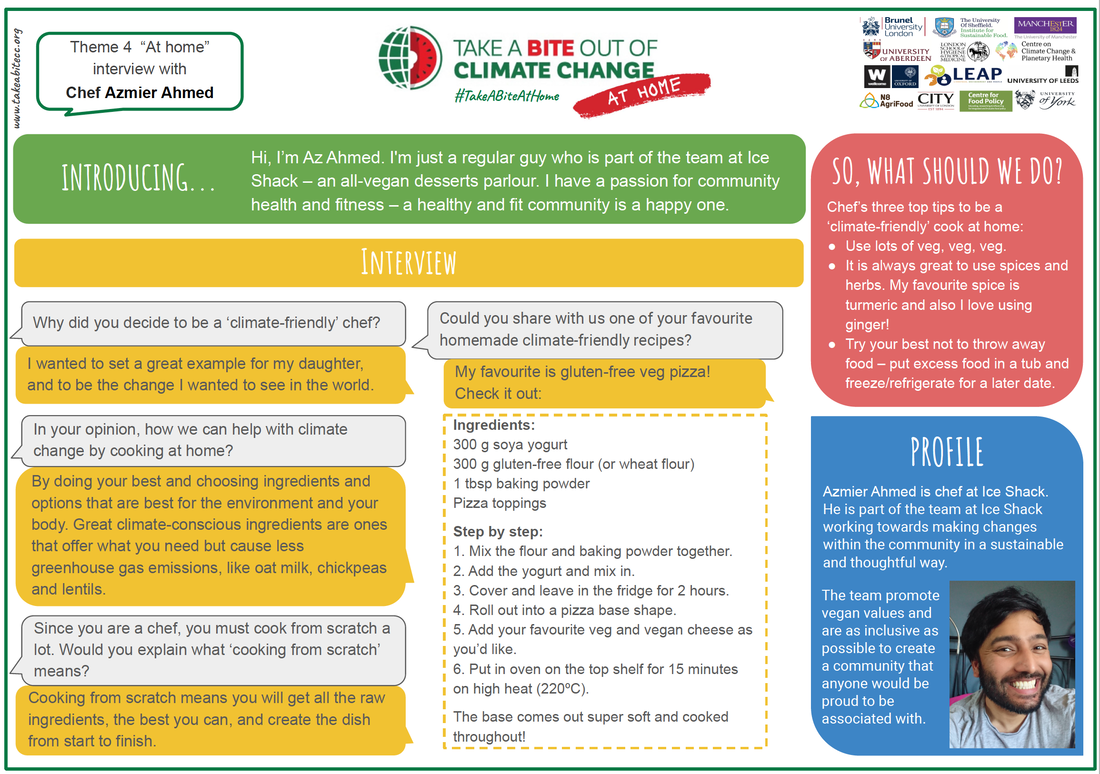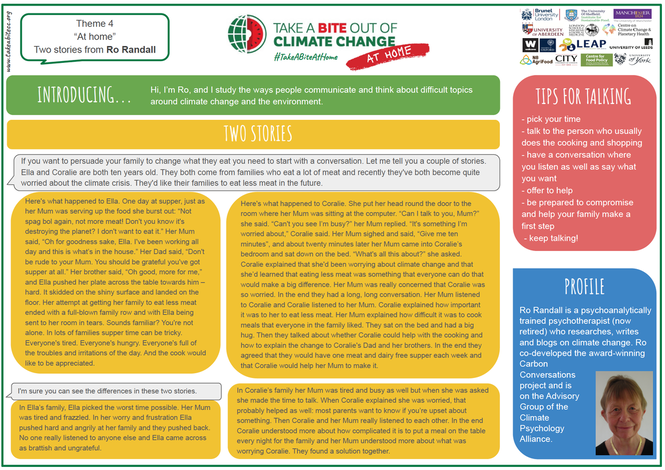|
Take a Bite Out Of Climate Change At Home began life in June 2020 during the first Covid lockdown. It was created as a four week programme of activities for children arranged around four themes. Below you'll find worksheet activities to print out, interesting facts, interviews with experts including scientists, politicians, farmers and entrepreneurs, plus links to more resources. The activities aim to help children learn about how food reaches our plates and how different choices contribute to climate change in the future. |
DID YOU KNOW?
- Humans are putting greenhouse gases into the air which is causing climate change
- Globally, producing food contributes more to climate change than transport
- Eating more plants like vegetables and beans, and eating less meat and dairy, will help tackle climate change
FIND OUT MORE FROM the experts
JAMES HAND
|
pROf pete sMITH
|
PROF dave reay
|
CHATTING TO Prof Pete Smith about why we need to change our diets and reduce food waste |
Theme TWO: AT THE FARM
Crops, cows and chickens - in our second theme you'll find out how growing our food can make a difference. How much food does a cow need to eat compared to if we ate the food ourselves? How much do cows contribute to climate change?
DID YOU KNOW?
- Cows have a stomach with four separate compartments to digest their food
- Tiny organisms in cows' stomachs cause them to burp a powerful greenhouse gas called methane
- Cows need a lot of food to provide us with beef and milk. The cow uses this food to grow, to keep warm and some of the food comes out as poo!
Activity worksheet: AT THE FARM
Can you see how much greenhouse gases are caused by producing milk and beef? Print out our activity sheet and have a go
FIND OUT MORE FROM THE EXPERTS
Theme Three: AT THE shops
Can we make our shopping trolley more climate-friendly? In our third theme we'll explore how the decisions we make when we're shopping affect climate change and we'll ask how important is it to eat locally and do we really need food packaging?
DID YOU KNOW?
- Soft fruits, like strawberries, are flown across the world so we can eat them fresh in the winter, which contributes to climate change.
- Food that can be transported by ship, for example bananas and dried beans, adds very little to the climate impact.
- A thin plastic film (weighing just 1.5 grams) makes cucumbers last for 14 days longer.
FIND OUT MORE FROM THE EXPERTS
Theme four: at home
Making lunches that are better for the planet - in our fourth theme you'll see if you can work out the climate impact of your lunch, find out how can we waste less food at home and how to cook food to cause less climate change.
DID YOU KNOW?
- If we halved the amount of meat, dairy and eggs we eat, it would reduce the world's food climate impact by one quarter
- Putting the oven on for 10 minutes causes about eight times as much greenhouse gas emissions as boiling a kettle.
- If food waste was a country, it would be the third largest contributor to climate change. In the UK, 70% of food waste happens at home.
extra materials
questions answered: what else can i DO TO influence the impact of food and climate change?
Hear from experts Lynne Bianchi (Director of Great Science Share for Schools), Professor Sarah Bridle (University of York), Julian Huppert (former MP) and Ian Boyd (Former Chief Scientific Adviser to Defra).
Print out our tips for talking to your family about food, climate change and changing your diet.
Mental health warning
|
|
Chantal says: "Understanding the environmental impact of how we live our day to day lives, including what we eat, is becoming increasingly important. Feeling able to impact the world in which we live can be empowering for young people, especially at a time during lockdown where young people have very little control. It has also been of paramount importance to understand the impact that the coronavirus lockdown has had on the mental health of children and young people.
If food and eating feels like it's taking over your life then it may be becoming a problem. If a member of your family has difficulties with food, especially if they are currently restricting their food intake or have done so in the past then, from a mental health perspective, we would recommend that you don't use these resources." |
Chantal adds "If you are worried, you can talk to your GP surgery over the phone or look at these resources for help.
https://youngminds.org.uk/find-help/for-parents/parents-guide-to-support-a-z/parents-guide-to-support-eating-problems/
https://youngminds.org.uk/find-help/for-parents/parents-guide-to-support-a-z/parents-guide-to-support-eating-problems/
The TakeaBiteAtHome project is coordinated by the following Takeabitecc Team members: Beckie Lait (videos), Alana Kluczkovski (worksheets), Melissa Lord (schools liaison), Sarah Bridle (theme 1), Joanne Cook (theme 2), Ximena Schmidt (theme 3), Carla Adriano Martins (theme 4), with input from the Takeabitecc Team. We are grateful to Ben Dare for proofreading and Carys Lavin for making the calendar, Estefani and Pablo Guimaraes for starring in the 'walk through' videos, as well as everyone who contributed to developing the materials so far - see our acknowledgements page for more details, including our funders.
Who we are
The Take a Bite Out of Climate Change Team is a group of scientists who are all concerned about how food contributes to climate change. We are not pushing for a particular solution, but would like everyone who decides to produce or to buy a particular food to be able to know about its greenhouse gas impact.
